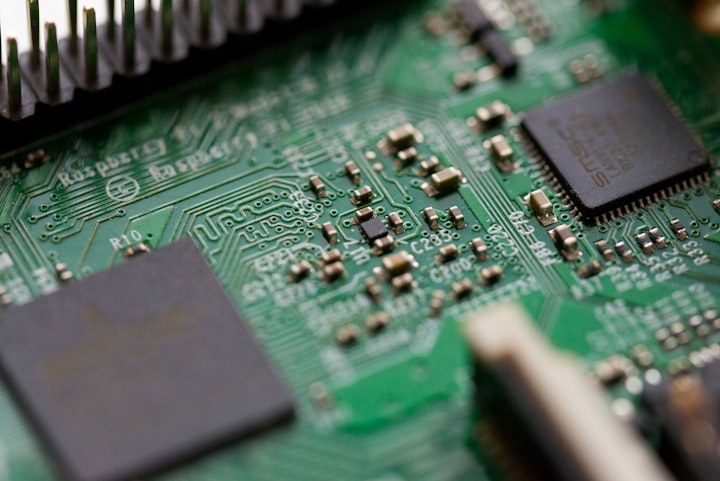"The Promise of Nanotechnology: Building a Smaller, Better World"
Exploring the Potential of Nanotechnology to Revolutionize Industries and Improve our Daily Lives.

Nanotechnology has been one of the most significant technological advancements in recent years. Its promise is in its ability to manipulate matter at the atomic and molecular levels, creating new materials with unique properties and characteristics. Nanotechnology has opened up a new world of possibilities, from medicine to electronics, energy, and environmental sustainability.
One of the most promising applications of nanotechnology is in the field of medicine. Researchers are using nanoparticles to create targeted drug delivery systems that can be directed towards specific cells and tissues in the body. This technology has the potential to revolutionize cancer treatment, for example, by allowing chemotherapy drugs to be delivered directly to cancer cells, leaving healthy cells unharmed. Nanoparticles can also be used to create implants that can monitor and regulate bodily functions, such as glucose levels in diabetics or blood pressure in hypertensive patients.
In the field of electronics, nanotechnology has already made significant strides. Nanoscale components such as transistors and sensors can be integrated into computer chips, allowing for more computing power in smaller, more energy-efficient devices. Nanotechnology is also being used to create flexible displays and batteries, which can be incorporated into wearable devices and other applications.
Nanotechnology has the potential to revolutionize the field of energy as well. One of the most exciting applications of nanotechnology in this field is in the creation of more efficient and cost-effective solar panels. Nanotechnology can also be used to create more efficient and longer-lasting batteries, which would be a significant advancement in the field of energy storage.
Environmental sustainability is another area where nanotechnology can make a significant impact. Nanoparticles can be used to filter pollutants from water and air, improving the quality of the environment. Nanotechnology can also be used to create more efficient and cost-effective methods for desalinating seawater, which could greatly increase the availability of freshwater in arid regions of the world.
While the promise of nanotechnology is great, there are also potential risks associated with this emerging technology. As with any new technology, there is always the possibility of unintended consequences and unforeseen risks. For example, there is concern that nanoparticles could have harmful effects on human health and the environment. Therefore, it is essential for scientists, policymakers, and the public to work together to ensure that the benefits of nanotechnology are realized while minimizing the potential risks.
In addition to the applications mentioned above, there are many other potential uses for nanotechnology. For example, researchers are exploring the use of nanotechnology in the production of stronger and lighter materials for use in the aerospace and automotive industries. Nanotechnology could also be used to create more efficient water filtration systems, which would be particularly useful in developing countries.
In conclusion, the promise of nanotechnology is vast, and its potential to revolutionize many aspects of our lives cannot be overstated. From medicine to electronics, energy, and environmental sustainability, nanotechnology has the potential to impact many areas of our lives in significant and positive ways. As this emerging technology continues to develop and evolve, it is important to balance the potential benefits with the potential risks to ensure that we create a safer, more sustainable, and more prosperous future for all.
Another area where nanotechnology shows great promise is in the field of agriculture. By using nanoparticles to enhance the delivery of nutrients to plants, researchers are working to increase crop yields while reducing the need for harmful fertilizers and pesticides. Nanotechnology can also be used to develop more effective and efficient sensors that can detect soil moisture and nutrient levels, allowing for more precise and targeted irrigation and fertilization.
In the realm of transportation, nanotechnology has already begun to play a role in the development of stronger and more lightweight materials for use in cars, airplanes, and other vehicles. This has the potential to not only make these vehicles more fuel-efficient but also safer and more durable.
Nanotechnology is also being explored as a potential solution to some of the world's most pressing environmental challenges, such as climate change and pollution. One possible application is the development of nanomaterials that can capture and store carbon dioxide emissions from power plants and other industrial sources. Additionally, nanotechnology can be used to create more effective and efficient air and water purification systems, helping to reduce pollution levels and improve public health.
However, as with any new technology, there are also potential ethical and social implications associated with nanotechnology. For example, there is concern that the development of nanotechnology could exacerbate existing social and economic inequalities, as access to these new technologies may be limited to those who can afford them. Additionally, there is the potential for the misuse of nanotechnology, such as the development of new weapons or other forms of harmful technology.
To address these concerns, it is essential that the development and deployment of nanotechnology be guided by ethical principles and considerations. This includes ensuring that access to nanotechnology is equitable and that the benefits of this technology are shared broadly across society. It also means taking steps to minimize the potential risks associated with nanotechnology, such as conducting thorough risk assessments and engaging in transparent and collaborative decision-making processes.
In summary, the promise of nanotechnology is vast, and this emerging technology has the potential to revolutionize many aspects of our lives. From medicine to energy, agriculture, and the environment, nanotechnology has the potential to drive significant progress and innovation. However, it is essential that we approach the development and deployment of this technology with caution, taking steps to minimize the potential risks and ensure that the benefits of nanotechnology are realized by all members of society.
About the Creator
Ilkin Gasimli
İlkin is a technology journalist who writes insightful articles about the latest advancements in the tech industry. Their work explores the impact of technology on society and sheds light on emerging trends and breaking news in the field.






Comments
There are no comments for this story
Be the first to respond and start the conversation.